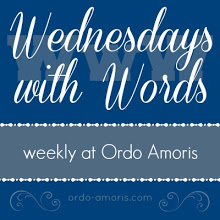Wordy Wednesday: Wonder and Trust
Self-consciousness, however, does hinder the experience of the present. It is the one instrument that unplugs all the rest. So long as I lose myself in a tree, say, I can scent its leafy breath or estimate its board feet of lumber, I can draw its fruits or boil tea on its branches, and the tree stays tree. But the second I become aware of myself at any of these activities –looking over my own shoulder, as it were — the tree vanishes, uprooted from the spot and flung out of sight as if it had never grown. And time, which had flowed down into the tree bearing new revelations like floating leaves at every moment, ceases. It dams, stills, stagnates.
Self-consciousness is the curse of the city and all that sophistication implies. It is the glimpse of oneself in a storefront window, the unbidden awareness of reactions on the faces of other people — the novelist’s world, not the poet’s. I’ve lived there. I remember what the city has to offer: human companionship, major-league baseball, and a clatter of quickening stimulus like a rush from strong drugs that leaves you drained. I remember how you bide your time in the city, and think, if you stop to think, “next year . . . I’ll start living; next year . . . I’ll start my life.” Innocence is a better world. (Pilgrim at Tinker Creek pg 83)
If Thou Could’st Empty All Thyself Of Self

